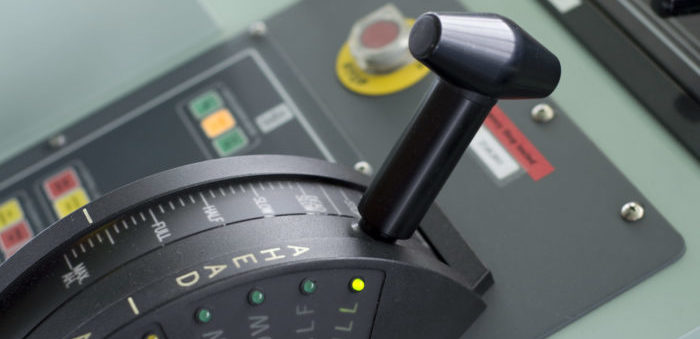BIMCO’s Deputy Secretary General, Lars Robert Pedersen, discusses how the shipping industry can accomplish speed reduction in a way to achieve cutting emissions and whether measuring a vessel’s speed is an easy task. Mr Pedersen highlights that there’s a high possibility that imposing speed limits to vessels will not bring the needed results in cutting shipping emissions, and explains why.
Prior to Mr Pedersen stressing that it is crucial to understand how the speed limit could be checked, in an exclusive interview with the SAFETY4SEA team, Dr Harilaos Psaraftis, presented a different point of view referring to speed reduction, stating that it will undoubtedly lead to GHG emissions reduction. Yet, the implementation of speed limits will bring many disadvantages in the market and will affect the sector’s goal on developing energy-efficiency technologies and low carbon fuels to be in compliance with IMO’s GHG emissions reduction targets.
The important question is not whether a speed limit should be introduced to cut emissions, but how it would be checked.
Mr Pedersen continues that implementing speed limits may seem fruitful in theory, but it is not that easy to conduct in practice.
Therefore, Mr Pedersen presents four options, according to which the shipping industry could measure and accurately check the imposed speed limits, noting which one of them is the one that could work in practice:
- A limit for speed through water: This can not be accurately checked, but is closely related to emissions;
- A limit for speed over ground: It can be accurately checked, but presents lower correlation to emissions;
- A limit for average speed – either over ground or through water – : Possible to check this, but there’s a much lower correlation to emissions;
- Limits for propulsion power: The only option that can be accurately checked and is closely linked to emissions.
The fourth option, which according to Mr Pedersen is the ideal one, requires a technical approach and understanding.
Specifically, from the everyday perspective, speed is understood by people when they move on the ground. For instance, if you move 7 km for an hour, your average speed is 7 km per hour. However, he addresses that moving on the ground means that the wheels on the car can turn one revolution, and the car moves exactly the distance equal to the circumference of the wheel.
It is different at sea – and, for that matter, when we talk about movement in the air.
#1 Moreover, a vessel’s speed through water can not be accurately measured. The challenge is that measuring the speed when the vessel is sailing means that we have to also measure the ship’s speed through water plus or minus the current at any given time, since the vessel not only moves on water but also over ground, the same as the water in which the ship sails.
- For a new vessel the speed measurement is conducted in the shipyard, as it measures the ship’s speed/power curve by conducting a measured double run between two fixed positions: back and there. There’s no impact from currents and this measurement presents the average speed over ground, reflecting the vessel’s speed through water;
- For a vessel operating, Mr Pedersen comments that its speed measurement is impractical in the manner above. To measure the vessel’s speed, the shipping company measures the propeller revolutions and factoring in average slip percentage for the ship.
BIMCO’s Mr Pedersen explains:
[Slip is the relation between the observed movement of the ship when the propeller turns one revolution in the water and the propeller’s theoretical movement of the ship, had the water been a solid material.]
#2 Speed over ground, along with speed measurement leads to a large scatter, due to the fact that the current changes in location and time. The difference is about 50% between favourable and unfavourable currents.
#3 The average speed depends on how speed though water and power correlates for a ship. For instance, a vessel sailing between two locations, at a constant speed emits 100% CO2. The same vessel travelling between the same two locations, under the hypothesis that it sails the first half distance at 50% higher than the average speed, and the second half at higher speed, would emit 141% CO2.
#4 Mr Pedersen reports that the emissions are powered by the ship’s engines, which provides a good correlation between emissions and the power of engine.
He concluded that the shipping industry should question itself whether speed limits help cut emissions, or they are walking towards the wrong path of cutting the industry’s GHG emissions.






























































